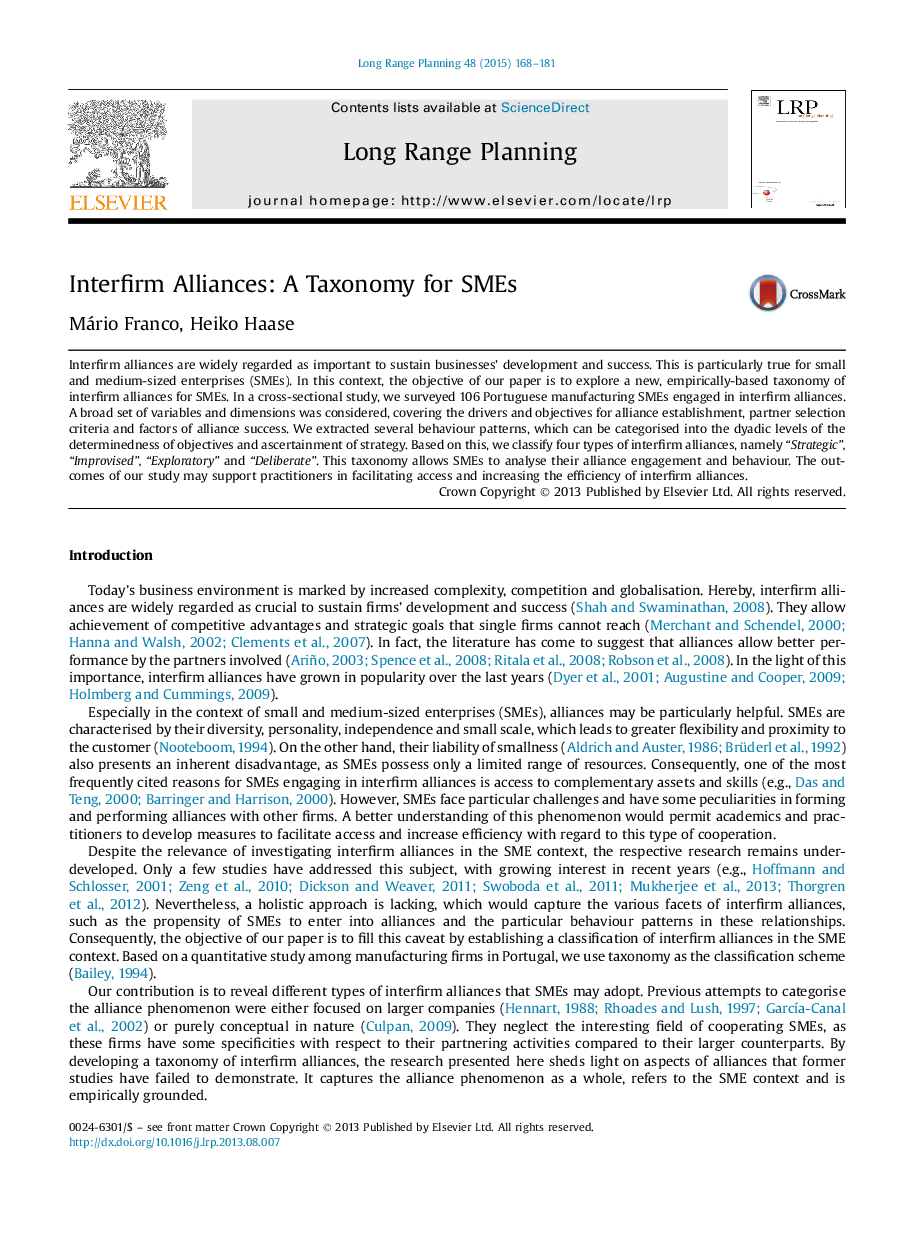| Article ID | Journal | Published Year | Pages | File Type |
|---|---|---|---|---|
| 1021247 | Long Range Planning | 2015 | 14 Pages |
Interfirm alliances are widely regarded as important to sustain businesses' development and success. This is particularly true for small and medium-sized enterprises (SMEs). In this context, the objective of our paper is to explore a new, empirically-based taxonomy of interfirm alliances for SMEs. In a cross-sectional study, we surveyed 106 Portuguese manufacturing SMEs engaged in interfirm alliances. A broad set of variables and dimensions was considered, covering the drivers and objectives for alliance establishment, partner selection criteria and factors of alliance success. We extracted several behaviour patterns, which can be categorised into the dyadic levels of the determinedness of objectives and ascertainment of strategy. Based on this, we classify four types of interfirm alliances, namely “Strategic”, “Improvised”, “Exploratory” and “Deliberate”. This taxonomy allows SMEs to analyse their alliance engagement and behaviour. The outcomes of our study may support practitioners in facilitating access and increasing the efficiency of interfirm alliances.
